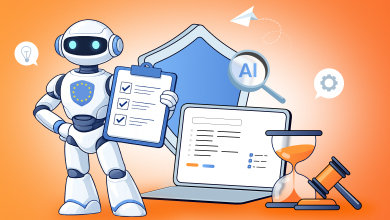
‘Web scraping’, a term which itself has unhappy connotations, has long had a reputational issue. Its rehabilitation began with semantics, namely changing the terminology to ‘data extraction’. Those who have been working in the field for years are very happy referring to it as web scraping as they understand its technical meaning. Recently though, the industry has benefited from something of a rebrand, due to the growing realisation that when you ask Open AI to search it gathers its results by….web scraping.
By any other name….
Whether AI is gaining its results from Reddit, Google or X, it’s going to the URL, it’s getting the HTML and it’s asking for content. It’s just being called ‘indexing’; no company yet has criticised Google for web scraping, and it’s something Google has been doing for years. Combining AI with web scraping will free up data extraction from its unsavoury connotations, democratise the process, make its use more mainstream, its use cases more diverse and more businesses will benefit.
Basic misconceptions
Firstly, let’s clear up some misconceptions about web scraping, or data scraping/extraction. It’s the process of automating the finding of data on the internet through software, taking information that is freely available. Quality web scraping companies use anonymised open-source data from sites that comply with GDPR and never collect password protected information. In the early stages of its development, industry panicked and attempted legal action against data extractors, which they lost on the grounds that scraping publicly available data was entirely legal.
Unjust image
Sadly though, that image of data extraction as a dubious activity has lingered. In fact, when looked at rationally, data extractors or web scrapers are simply doing what, as an example, every single supermarket does on a daily basis – they check the prices of goods in other supermarkets. Whether they are doing it on an ecommerce platform or by walking through the store and taking notes, they’re extracting data. In fact, free API web scrapers are offered by recognised providers like Amazon AWS.
How does AI benefit web scraping
The integration of AI into web scraping is changing its ill-deserved reputation and boosting its efficiency. Thanks to AI-integrated web scraping tools like Octoparse and Chat4Data, websites that are frequently updated, dynamic websites or those with anti-scraping defences are no longer a barrier. The AI identifies the structure of the web page it’s looking at, analyses and then adapts and adjusts its strategy to scrape the data. As a result of the evolution of deep learning models, designed for image recognition, AI integrated data extractors can also work on pages displayed in a web browser by looking at the web page visually rather than having to use HTML.
The need for scale
Scalability, essential when businesses need thousands of requests per minute for real-time snapshots, is made far easier using AI in web scraping, thanks to Machine Learning. Huge amounts of data can be scraped across multiple sites to create enormous data sets that just would not have been feasible before. In addition, the speed at which adjustments can be made is hugely accelerated so inventory or price changes can be updated rapidly.
Answering a common need
There is a huge tranche of sectors that will gain from AI enhanced data extraction; from travel retailers, tracking prices across airports for duty-free products, to real estate and property companies keeping abreast of listings data and solicitors gathering corporate registry and bankruptcy data for B2B credit assessment. The common thread across industries is the need to collect, standardize, and analyse publicly available data at scale to gain competitive advantages or automate manual processes.
Training, pricing and opinion
AI scraping tools are very often used to collect data that informs pricing strategies. Ecommerce companies can monitor their competitors’ prices and stock levels and dynamically adjust their own pricing strategies accordingly.
As well as factual data, AI data scraping can also be used in market research, gleaning sentiment or points of view from more personal data sources, including blogs, political forums or social media, as well as collecting data from articles and reviews to train AI models themselves. Machine learning models require huge datasets to help them improve and this training data improves their performance and accuracy.
Real life instance
Let’s look at an example of AI enhanced web scraping. Clay, a sales tech SaaS platform, enriches scraped data with AI-powered lead intelligence and automates outbound workflows, turning raw scraped data into actionable business intelligence, and a Canadian fintech startup specializing in B2B risk assessment was able to benefit from exactly that.
The company was facing increasing pressure to deliver due diligence reports faster to compete with larger players. As manual copy-pasting from multiple sources was now insufficient, they attempted to automate data collection through web scraping but found anti-bot blocks made it inefficient with their provider at the time.
Looking for an answer to slow and inefficient manual processes, inconsistent data formats, limited scalability, human intensive workflow costs, slow turnaround times and increased risk of errors alongside the bot-blocking, the startup made the decision to shift to AI enhanced data extraction. Within weeks it was able to process 6,000-15,000 monthly reports from corporate registries and business databases, reduce manual copy-paste work by 80% and enable its 20-person team to compete effectively with much larger firms. The company is now planning on leveraging scraped data to train AI models for duplicate detection and advanced data interpretation.
Web scraping’s super power
AI can integrate seamlessly into automated data collection, or web scraping and turn complex, time-consuming data collection into a reliable, scalable, and high-impact process. It may also give this maligned business tool the change in reputation it deserves, from a perceived ‘necessary evil’ into an unsurpassed method of gaining valuable insight.




